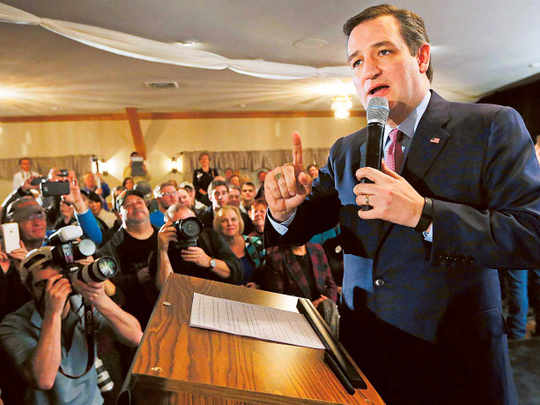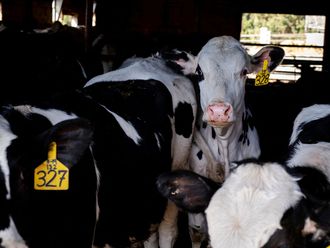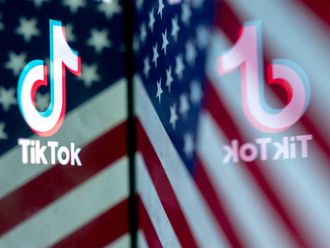
Mount Pleasant, South Carolina: Donald J. Trump’s rivals for the Republican presidential nomination dug in Wednesday for a hard fight in the South Carolina primary, where Trump will seek to gain a clear upper hand in the 2016 race after his smashing victory in New Hampshire.
But the effort to stop Trump was only one element of the hard-edged, multifront campaign shaping up here among five candidates, nearly all of whom are facing immense pressure to demonstrate strength.
The Republican contest after New Hampshire has in some respects been clarified into two parallel battles: between Trump and Senator Ted Cruz, the anti-establishment duo, and among three establishment-friendly hopefuls.
But — on Wednesday — the contenders began exchanging fire in a way that illustrated the complexities of the race — and the unique calculations each candidate is making.
Above all, there is a fight against Trump, which will be waged by both Cruz and the mainstream candidates. After largely avoiding a sustained ad assault in New Hampshire, Trump is likely to face far more attacks here, — a state where campaigns can turn rough.
Cruz wasted little time Wednesday in signalling how he intended to run against the New York real estate mogul in the Bible Belt.
“The only way to beat Donald Trump is to highlight the simple truth of his record: It is not conservative,” he said in Myrtle Beach, highlighting his own ironclad conservative credentials.
But in a sign of how he is facing challenges on two flanks, Cruz also began airing ads here against Senator Marco Rubio of Florida as well as Trump.
The Republican Party in South Carolina is a lot like the party writ large. It is torn between activists enraged by President Barack Obama and eager for the bald confrontation promised by Trump and Cruz, and party leaders hungry to take back the White House and considering candidates such as Rubio and Jeb Bush.
The contest here, coming on the heels of Cruz and Trump’s capturing the first two states, could help determine which of those two animating forces has more currency in the party.
Among the three mainstream Republican candidates, the South Carolina contest, on February 20, appears to be a race against Trump and a primary-within-a-primary among establishment candidates — Bush, Rubio and Governor John Kasich of Ohio — to win the right to ultimately challenge Trump and Cruz.
Bush injected his stump speech with a new shot of urgency after Trump’s victory, warning South Carolinians that the Republican Party’s identity was at stake.
“Our party is being hijacked by people who do not believe in the goodness of the conservative cause,” Bush said. “I do. I believe it.”
Whether enough Republicans believe in him, though, remains an open question.-And if he is not able to find his way into the top three in this state, he will again face the same questions about his candidacy as he did going into New Hampshire.
Rubio, too, signalled to reporters on his campaign plane that he would challenge Trump more assertively on his command of policy.
“I don’t think you can keep saying, ‘Trust me, I got a plan for it,’” Rubio said. “I think as we get closer, especially now that he’s been successful in New Hampshire, I would expect people will be pressing for more details.”
Even more than Bush, Rubio is grappling with how to confront multiple foes. And after his disastrous debate performance Saturday and a fifth-place finish in New Hampshire, the future of his campaign may ride on a resurrection in South Carolina.
The Florida senator is trying to position himself as something of a hybrid candidate, acceptable to the establishment and to the hard right, so he is taking aim at Trump and Cruz while also re-engaging Bush.
Still, the state’s voting rules may create some extra space for candidates outside the hard right. South Carolina does not register voters by political party, so any voter can cast a ballot in either the Democratic or the Republican primary, though not in both.
Kasich, whose second-place showing in New Hampshire was fuelled by support from independents, is hoping to replicate such cross-party appeal in South Carolina but faces a far stiffer test here. He won about 16 per cent of the vote in New Hampshire with a message crafted entirely to appeal to moderate Republicans and independent voters there and must show he is not a one-state wonder.
That pitch will probably have more limited appeal in South Carolina and across the next round of primary states, particularly if Kasich faces an advertising assault from Bush and the super PAC supporting him. He said on the plane from New Hampshire that any suggestion that he weakened the military is “kind of silly.”












